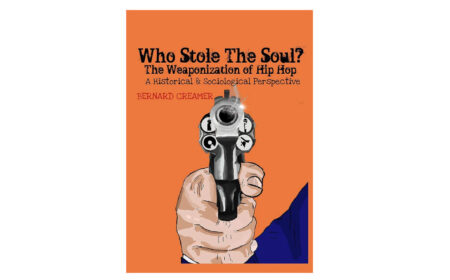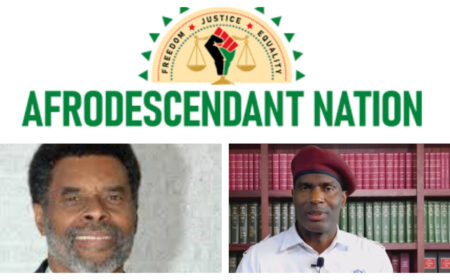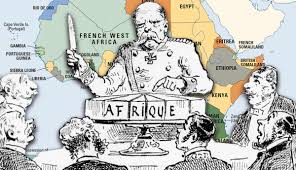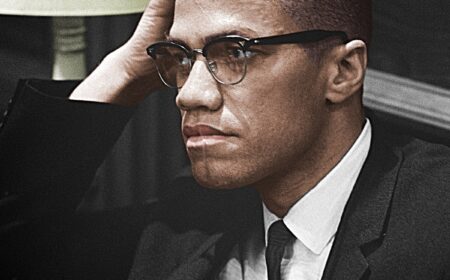WE MUST NEVER FORGET!!! DEACONS FOR DEFENSE AND JUSTICE
WE MUST NEVER FORGET!!!
DEACONS FOR DEFENSE AND JUSTICE
On July 10, 1964, a group of African American men in Jonesboro, Louisiana led by Earnest “Chilly Willy” Thomas and Frederick Douglas Kirkpatrick founded the group known as The Deacons for Defense and Justice to protect members of the Congress of Racial Equality (CORE) against Ku Klux Klan violence. Most of the “Deacons” were veterans of World War II and the Korean War. The Jonesboro chapter organized its first affiliate chapter in nearby Bogalusa, Louisiana led by Charles Sims, A.Z. Young and Robert Hicks. Eventually they organized a third chapter in Louisiana. The Deacons tense confrontation with the Klan in Bogalusa was crucial in forcing the federal government to intervene on behalf of the local African American community.
The Deacons were a driving force of Black Power that Stokely Carmichael echoed. Carmichael speaks about the Deacons when he writes, “Here is a group which realized that the ‘law’ and law enforcement agencies would not protect people, so they had to do it themselves…The Deacons and all other blacks who resort to self-defense represent a simple answer to a simple question: what man would not defend his family and home from attack?” The Deacons, according to Carmichael and many others, were the protection that the Civil Rights needed on local levels, as well as, the ones who intervened in places that the state and federal government fell short.
The Deacons were not the first champions of armed-defense during the Civil Rights Movement. Many activists and other proponents of non-violence protected themselves with guns. Fannie Lou Hamer, the eloquently blunt Mississippi militant who outraged Lyndon B. Johnson at the 1964 Democratic Convention, confessed that she kept several loaded guns under her bed. Others such as Robert F. Williams also practiced self-defense. Williams transformed his local NAACP branch into an armed self-defense unit, for which transgression he was denounced by the NAACP and hounded by the federal government (he found asylum in Cuba).
Dr. Martin Luther King Jr. was no stranger to the idea of self-defense. According to Annelieke Dirks, “Even Martin Luther King Jr.—the icon of nonviolence—employed armed bodyguards and had guns in his house during the early stages of the Montgomery Bus Boycott in 1956. Glenn Smiley, an organizer of the strictly nonviolent and pacifist Fellowship of Reconciliation (FOR), observed during a house visit that the police did not allow King a weapon permit, but that ‘the place is an arsenal.” Efforts from those such as Smiley convinced Dr. King that any sort of weapons or “self-defense” could not be associated with someone holding King’s position. Dr. King agreed.
The African-American community felt that a response of action was crucial in curbing this terrorism given the lack of support and protection by State and Federal authorities. A group of African-American men in Jonesboro in Jackson Parish in north Louisiana, led by Earnest “Chilly Willy” Thomas and Frederick Douglas Kirkpatrick, founded the group in November 1964 to protect civil rights workers, their communities and their families against the Klan. Most of the Deacons were war veterans with combat experience from the Korean War and World War II. The Jonesboro chapter later organized a Deacons chapter in Bogalusa, Louisiana, led by Charles Sims, A. Z. Young and Robert Hicks. The Jonesboro chapter initiated a regional organizing campaign and eventually formed 21 chapters in Louisiana, Mississippi, and Alabama. The militant Deacons’ confrontation with the Klan in Bogalusa was instrumental in forcing the federal government to invervene on behalf of the black community and enforce the 1964 Civil Rights Act and neutralize the Klan.
Earnest “Chilly Willy” Thomas was born in Jonesboro, Louisiana, on November 20, 1935, in a time of extreme segregation. He believed that political reforms could be secured by force rather than moral appeal. The CORE had a freedom house in Jonesboro that became the target of the Klan. The practice referred to as “nigger knocking” was a time-honored tradition among whites in the rural South. Because of repeated attacks on the Freedom House, the Black community responded. Earnest Thomas was one of the first volunteers to guard the house. According to Lance Hill, “Thomas was eager to work with CORE, but he had reservations about the nonviolent terms imposed by the young activists.” Thomas, who had military training, quickly emerged as the leader of this budding defense organization that would guard the Jonesboro community in the day with their guns concealed and carried their guns openly during the cover of night to discourage any Klan activity. The history of the Civil Rights Movement focuses little on organizations such as the Deacons for a number of reasons. First, the dominant ideology of the Movement was one of practicing non-violence and this overarching view has been the accepted way to characterize the Civil Rights Movement. Second, threats to the lives of Deacons’ members required that secrecy be maintained to avoid terrorist attacks on their supporters, and they recruited mature and male members, in contrast to other more informal self-defense efforts in which women and teenagers also played a role.[3] Finally, with the shift to Northern Black plight and the idea of Black Power emerging in major cities across America, the Deacons became yesterday’s news and organizations such as The Black Panther Party gained notoriety and became the publicized militant Black organization.
The tactics of the Deacons attracted the attention and concern of the Federal Bureau of Investigation. Investigating the group over the years, the Bureau produced more than 1,500 pages of comprehensive and relatively accurate records on the Deacons, activities, largely through numerous informants close to or even inside the organization. Members of the Deacons were repeatedly questioned and intimidated by F.B.I. agents. One member, Harvie Johnson (the last surviving original member of the Deacons for Defense and Justice), was “interviewed” by two agents who asked only how the Deacons obtained their weapons, with no questions about Klan activity or police brutality ever asked. In February 1965, after a New York Times article about the Deacons, J. Edgar Hoover became interested in the group. Lance Hill offers Hoover’s reaction, which was sent to the field offices of the Bureau in Louisiana: “Because of the potential for violence indicated, you are instructed to immediately initiate an investigation of the DDJ [Deacons for Defense and Justice].” As was eventually exposed in the late 1970s, under its COINTELPRO program, the FBI was involved in many illegal activities to spy on and undermine organizations it deemed “a threat to the American way”. However, with the advent of other militant Black Power organizations, and the Black Power Movement becoming the more visible movement towards the latter 1960s, the involvement of the Deacons in the civil rights movement declined , with the presence of the Deacons all but vanishing by 1968






Comment (1)
Tim
This happened during the Jim Crow laws and other racist Democratic support. Fast forward to 2019, Democrats still want our rights and guns.
We need to stand up for the right to owns guns, do let Democrats take our rights. We must fight!